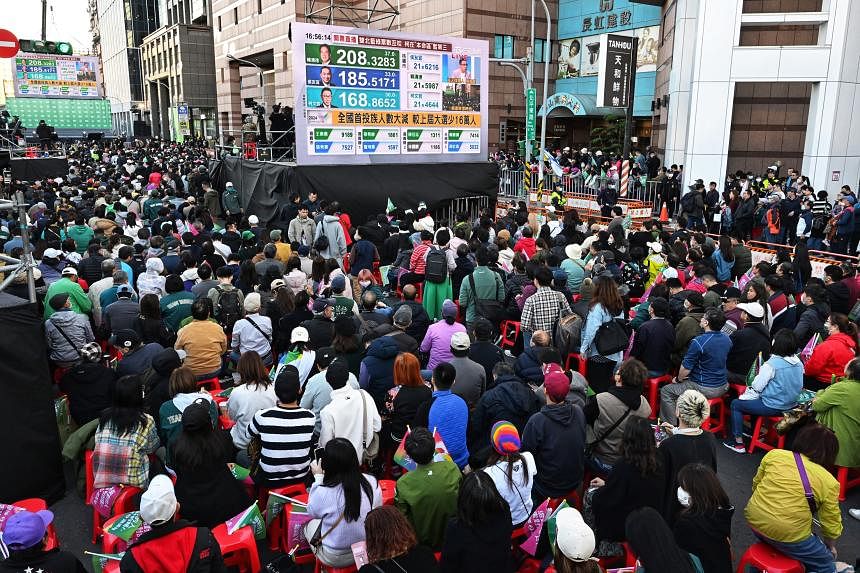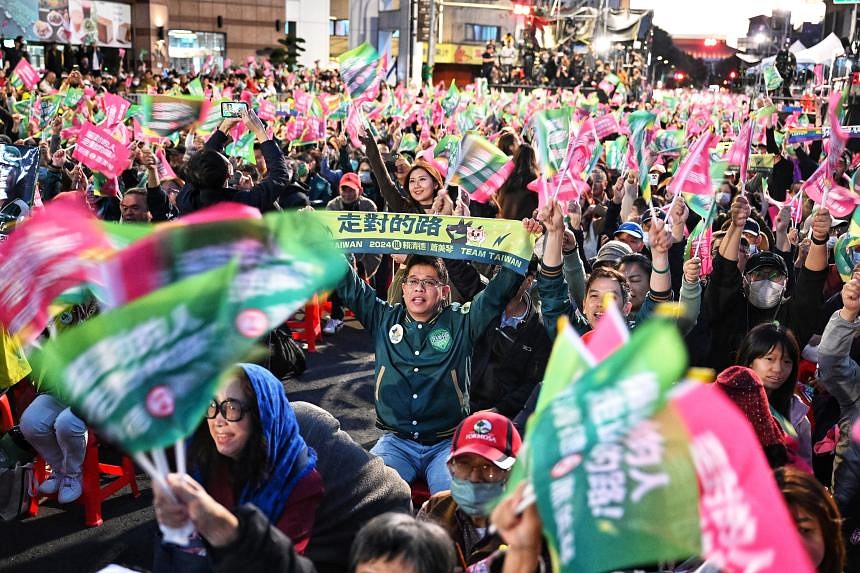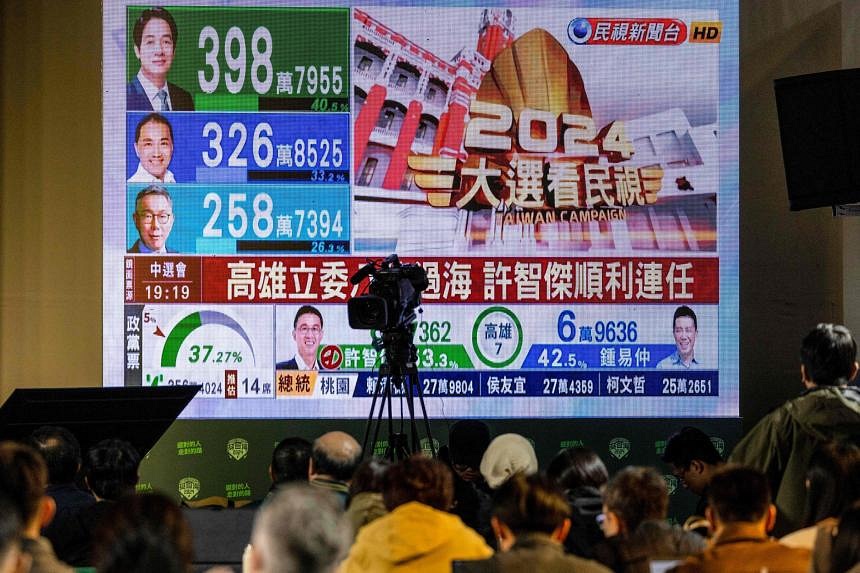TAIPEI - Mr Lai Ching-te, the presidential candidate for Taiwan’s ruling Democratic Progressive Party (DPP), won an election on Jan 13 that China had framed as a choice between war and peace.
Mr Lai was facing two opponents for the presidency - Mr Hou Yu-ih of Taiwan’s largest opposition party the Kuomintang (KMT) and former Taipei mayor Ko Wen-je of the small Taiwan People’s Party, founded only in 2019. Both conceded defeat.
Mr Lai’s DPP, which champions Taiwan’s separate identity and rejects China’s territorial claims, was seeking a third term, unprecedented under Taiwan’s current electoral system.
According to official data from Taiwan’s Central Election Commission, Mr Lai had 40.1 per cent of the vote with ballots counted from 99 per cent of polling stations.
Mr Hou trailed in second place with 33.5 per cent, while Dr Ko took 26.5 per cent of the vote.
Speaking to reporters in the southern city of Tainan before voting, Mr Lai encouraged people to cast their ballots.
“Every vote is valued, as this is Taiwan’s hard-earned democracy,” he said in brief remarks.
In the run-up to the election, China repeatedly denounced Mr Lai as a dangerous separatist and rebuffed his repeated calls for talks.
Mr Lai says he is committed to preserving peace across the Taiwan Strait and boosting the island’s defences.
Taiwan’s Defence Ministry said on the morning of Jan 13 it had again spotted Chinese balloons crossing the sensitive strait, one of which flew over Taiwan itself.
The ministry has denounced the spate of balloons reported over the strait in the past month as psychological warfare and a threat to aviation safety.
“Nobody wants war,” said Ms Jennifer Lu, 36, a businesswoman, who was playing on a grass pitch with her daughter after casting her ballot on a sunny morning in Taipei’s Songshan district.
Mr Hou wanted to restart engagement with China beginning with people-to-people exchanges and has, like Beijing, accused Mr Lai of supporting Taiwan’s formal independence. Mr Lai says Mr Hou is pro-Beijing, which Mr Hou rejects.

Dr Ko has won a passionate support base, especially among young voters, for focusing on bread and butter issues such as the high cost of housing.
He also wanted to re-engage China but insists that cannot come at the expense of protecting Taiwan’s democracy and way of life.

The parliamentary elections are equally important, especially if no party wins a majority, potentially hindering the new president’s ability to pass legislation and spending, especially for defence.
“Compared to previous elections, the result this time is very difficult to predict,” said financial-sector worker Liao Jeng-wen, 44, who voted early on Jan 13. “Taiwan’s next leader should think of ways to peacefully get along with China... Many Taiwanese think we should maintain the status quo.”
President Tsai Ing-wen is constitutionally barred from standing again after two terms in office. REUTERS






